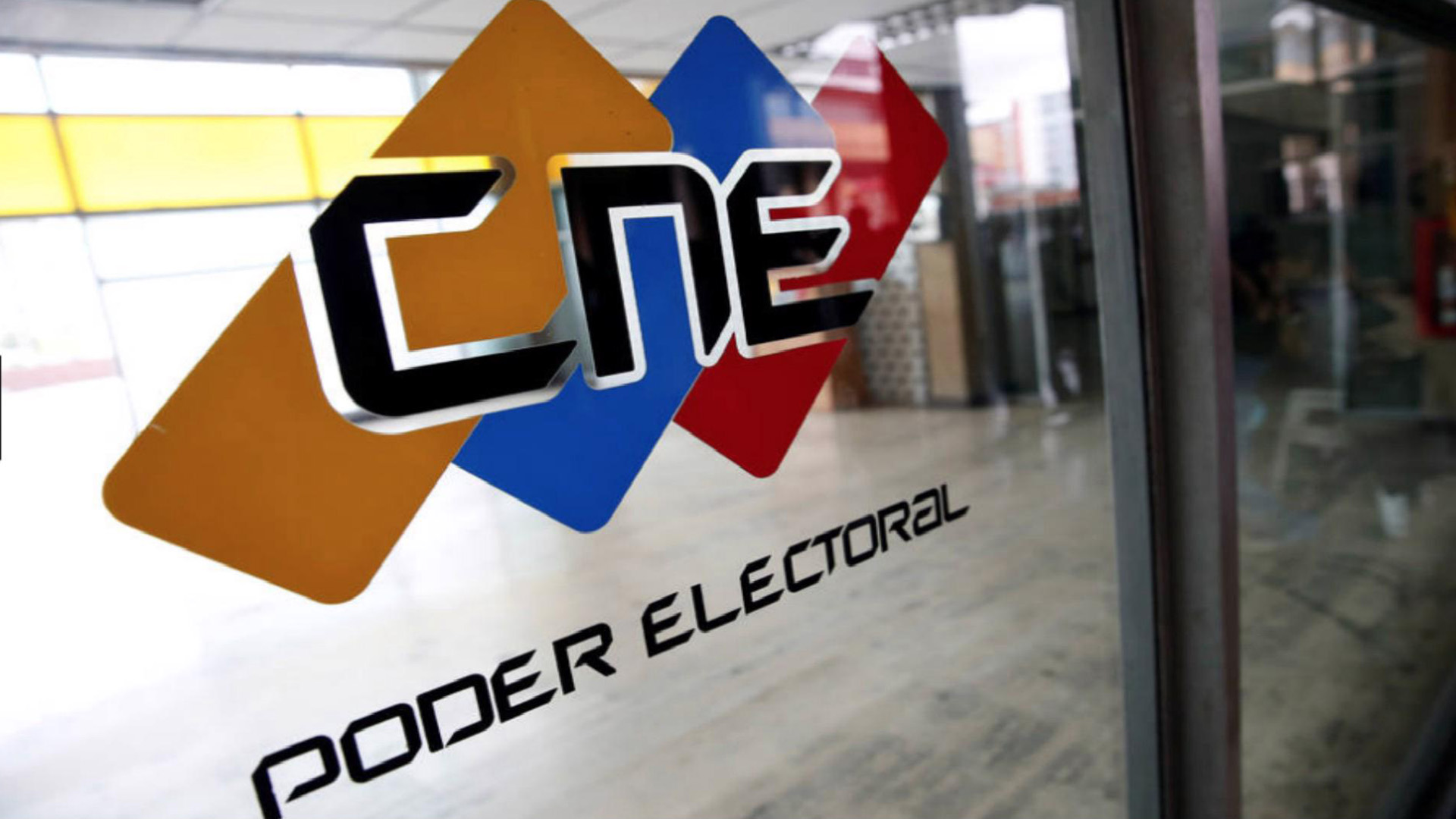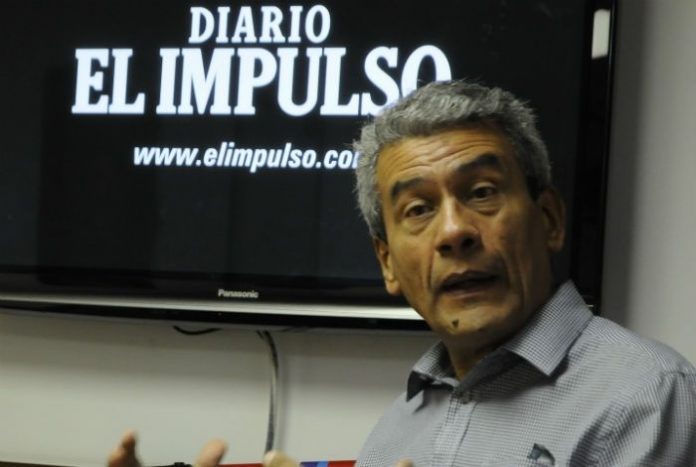On the eve of the presidential elections, the climate of political violence in Ecuador has spread to Venezuela, where some candidates for the opposition primaries of October 22 have denounced threats against their physical integrity during political rallies across the country.
An institutional threat also pends over the opposition primaries, in the form of an appeal introduced by Luis Ratti before the Supreme Court of Justice (TSJ) to stop the holding of the election.
Likewise, the hints of intimidation from public statements by political spokesmen and officials and the judicial measures against dissent inside and outside the opposition contest have set off the alarms of what could be along the way.
What are the risks facing the opposition process? We summarize some of the key points:
An appeal before the Supreme Court
As the streets heat up in anticipation of the opposition primaries, the Supreme Court of Justice is expected to rule on the appeal introduced by Luis Ratti against the opposition primaries on May 30.
Ratti denounced the existence of alleged “organized mafias in the opposition” and asked the head of the Judiciary to appoint a new National Primary Commission to “clean up the process that they have tainted and guarantee democracy, participation and moving towards a new political unity in the country,” he said.
The opposition leadership does not rule out a decision against the opposition primary aiming at “forcing” a change of date by ordering the new board of the National Electoral Council (CNE) -which is yet to be appointed by the Government-controlled National Assembly- to provide technical assistance to the opposition primaries.
Fear also exists of a new banning of potential presidential candidates by the office of the Comptroller General of the Republic. The latest opposition politician and primary candidate to be banned from holding public office for 15 years is María Corina Machado. Opposition leaders Henrique Capriles and Freddy Superlano have already been banned.
The words of Diosdado Cabello
In early June, Capriles was attacked during a rally in Valencia, Carabobo state by a member of the United Socialist Party of Venezuela (PSUV). The agent of the Venezuelan regime Diosdado Cabello justified the incident as the manifestation of the “fair protestation” of the people against an opposition that called for international sanctions while clarifying that he will always side with his allies “even if they are not right”, which suggests that government supporters who engage in such behavior will not be punished.
Cabello did not stop there; After the incident, he began to visit different regions of the country and working-class neighborhoods of Caracas such as Antímano and San Juan in an attempt to counteract the rallies of the opposition leaders and urge the supporters of Chavismo to “rebuke” the adversaries who go to the communities to seek votes and ask them an explanation for the sanctions.
The narrative is almost always directed against Machado, the current frontrunner of the primary race according to polls. In fact, Cabello has traveled to cities like La Guaira and Maracaibo just before the visit of the former member of parliament, who has called him a “harasser of women.”
At the same time, Cabello has claimed that violence comes from the opposition to “justify the failure of the primaries” and because they know that the banned leaders will not be able to run in 2024. “We are not violent, but we are not stupid, there is no way for them,” he assured during a visit to the Caracas community of El Guarataro, on August 2.
“With his invitation to rebuke the opposition candidates, knowing that this can lead to violence, Cabello is encouraging impunity: whoever attacks a candidate will not be punished. It is not an infallible strategy because we could see a turn of events like the one we witnessed in La Guaira, where the local police under the orders of the ruling party protected Machado and even showed her support,” explains political scientist Enderson Sequera.
The reaction of Maduro and the chief of the National Guard
During the August 5 celebration of the 86th anniversary of the Bolivarian National Guard (GNB), the body’s newly appointed commander, Elio Estrada Paredes, described the banned opposition leaders as “fake candidates” who seek to affect the “political stability and the exercise of the right to vote”.
In such a scenario, Estrada Paredes warned that the National Guard will focus on the preservation of the internal order in the coming months and is anticipating the objection by “the national and international far right” of the soon-to-be-appointed board of directors of the National Electoral Council.
Opposition leaders and political analysts have indicated that the ruling Chavismo seeks to discourage the opposition vote “both for the October 22 primary process and the 2024 presidential elections, through the appointment of an untrustworthy CNE.” The rush in appointing a new CNE board by the government-controlled National Assembly comes at a time when Nicolás Maduro hints once again at a snap election, which might be held as early as this year.
“Diosdado says that there could be elections this year, ah, there’s time,” Maduro said on August 11, which might obstruct the opposition’s plan to elect a unitary candidate at the primary.
Recently, the governor of the western Venezuelan state of Trujillo, Gerardo Márquez, asked the supporters of the central government in the region to beat up the leaders of the opposition, especially Machado, if they dared to visit the state. His words were registered in a video released on August 4.
Candidates have received death threats
On July 22, Maria Corina Machado’s party headquarters in the García de Hevia municipality, Táchira state, was vandalized with threatening messages against the candidate. Some of the messages written on the walls of the building included “Death to María Corina” or “primaries without María Corina”, the latter allegedly signed by the Colombian guerilla group National Liberation Army, ELN.
However, the ELN’s National Urban Warfare Front, through a statement by Commander-in-Chief Camilo Torres Restrepo, denied being the author of the messages. The group assured that they will not interfere in electoral matters of neighboring countries.
On August 12, opposition leader Delsa Solórzano published death threats received on her Facebook account from one user who also mentioned the ELN. The first threats were received in July and the second messages were sent after the assassination of Ecuadorian presidential candidate Fernando Villavicencio; the communication warned Solórzano that the same could happen to her and included slogans in favor of the Maduro government and the ruling PSUV.
The Venezuelan Public Ministry launched an investigation, initially supported by Cabello and Maduro, not without mentioning “doubts” about the veracity of both the threats and the allegations. The Minister of Interior, Remigio Ceballos, also offered protection for the candidate, to which Solórzano replied that “all opposition candidates run the same risk.”
“This investigation is going to be carried out, the truth is going to be discovered. For me, this is a plot by evil people who are making threats in the name of Maduro, Diosdado and the Bolivarian revolution. We have never used the methods of terrorism, attacks and violence to settle our political differences, ” Maduro assured during an August 14 televised address.
During a previous press conference, Cabello had assured that he condemns the use of political violence “as a weapon to eliminate the adversary”, “wherever it comes from”, alluding to the assassination of the presidential candidate in Ecuador.
Cabello dismissed the threats denounced by Machado and Solórzano while maintaining that the murders and attacks in Venezuela have so far been directed against Chavista leaders. He cited the cases of the death of MP Robert Serra, Eliézer Otaiza, prosecutor Danilo Anderson and the attacks against Maduro.
Attacks during political rallies
According to his party, opposition candidate Henrique Capriles has been the target of attacks by supporters of Chavismo during rallies in the city of Valencia and the states of Miranda (May 29 and June 15), Aragua (June 7), Anzoátegui ( June 14), Delta Amacuro (August 10) and Apure (August 15).
On August 15, Capriles’ campaigning team in Apure, the Capriles denounced sabotage of a gathering. The event could be carried out after the chairs and sound equipment were destroyed and the decorations were burnt.
The party also denounced having been attacked by groups affiliated with Chavismo. Opposition leader and former state governor Luis Lippa blamed the current leader of the PSUV in the region, Eduardo Piñate, for the incident.
In a separate incident, groups linked to the ruling PSUV tried to prevent through the use of force the visit of opposition candidate Maria Corina Machado to La Guaira on July 14. A group of people surrounded the vehicle carrying the candidate to prevent it from moving forward. They also threw objects and pushed and hit the activists who were with Machado.
The situation did not escalate thanks to the intervention of the regional Police, who set a barrier to protect the candidate and even greeted her as she passed. The gesture was recognized by the former member of parliament on a video.
In contrast, Machado’s July 15 visit to the Caracas district of Petare was prevented through police checkpoints, closed streets and the presence of hostile government supporters roaming the area on motorbikes. Other people on foot shouted “betrayer”, “traitor”, “get out”, and “murderer” while holding banners.
Machado had previously hosted two big gatherings in Sabaneta and Santa Bárbara, Barinas state, on June 29. In the first of them, four members of the sound and stage crew were detained by the Bolivarian National Guard (GNB) and later released.
Translated by José Rafael Medina




